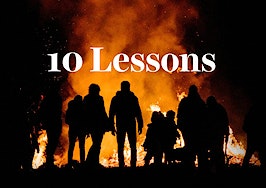The Great Recession is over, but it will never leave us completely — for many, the memories will fade but they will not die.
I remember feeling a sense of dread as our new reality unfolded: the listings kept flooding in, but we had significantly less buyers than sellers. I saw a consistent pattern of sellers who owed more on their home than they could sell it for, and I had to keep adjusting prices to accommodate the market drop.
Not even pocket listings, coming-soon listings or in-house office listings made a difference back then. The housing market was crashing, pulling down with it real estate jobs and the financial security and stability of so many involved in this industry. Countless real estate agents, brokers, staff, homebuyers and sellers were affected, and the memories of this event will remain unforgettable for years to come.
Here are some of mine.
The living nightmare continued
As home prices plummeted so did our commissions. For a few years, we all worked a lot harder for half as much compensation, and to make matters worse, there was no decrease in business expenses and gasoline prices soared.
Home prices and sales numbers went down each month while inventory continued its steady, unwelcome climb. Absorption rates, as calculated in months, went into the double digits.
Some upside-down homeowners had money they could bring to the closing, and some did not. I helped a few people short sell but always felt they would have been better off just walking away and moving on.
Some friends who planned on divorcing decided to split up but lived in the same house until they could sell it — neither could manage the payments on a single income.
I remember running into former real estate agents here and there who were waiting tables, working in coffee shops or working the cash register at a local store. Some would see this as a form of failure, but I saw it as a sign of being resilient and resourceful.
A memorable foreclosure
One foreclosure in particular stands out in my mind: A young man lost his home. It still stands right where he left it, but he doesn’t own it anymore — someone else does. He wanted to sell it when he broke up with his fiancee.
The bank sold it to a rehabber who fixed it up and resold it to another couple. Even after the bank sold it, though, he still owed about $70,000.
He could have easily afforded the payments the new owners were making. In fact, those payments were lower than any rental unit he could find after the foreclosure caused his credit rating to plummet.
We blame people for their financial misfortunes while patting ourselves on the back for having our own finances in order. Even today, banks seem to be doing much better than their former customers who had their homes repossessed. It’s amazing how people who cannot qualify for home loans or afford to buy a house are forced to pay more for rent than they would be paying on a mortgage each month for a comparable home.
It’s no wonder they aren’t doing as well.
The emptiness of bank-owned properties
I remember showing vacant bank-owned homes in the dead of winter and slipping on some ice on a kitchen floor. One interesting fact about unheated homes during a Minnesota winter is that it is always at least 10 degrees cooler inside than it is outside.
Many of the homes were not heated. As I toured the homes with buyers, we would find children’s toys and books and empty cribs. I still wonder where all those children are today.
People struggling to make mortgage payments because they had lost their job deferred maintenance on their homes. We saw leaky roofs, broken furnaces and elderly appliances that were no longer serviceable. The appliances had been removed in some homes, and sometimes the copper pipes were gone too.
Unhealed scars
By some miracle, my husband and I made it out of the recession with our home and most of our savings, but it wasn’t until 2015 that I started to believe things were steady enough for me to possibly retire at age 80 (assuming there is still some kind of Medicare).
I don’t ever want another mortgage. I paid it off shortly after the recession ended, and if there was some way I could live without ever using the banking system, I would.
There are scars all around us, some shallow and some deep, all left by the Great Recession and the housing market crash. There are vacant lots where houses once stood; there are huge houses on lots that once supported small houses; and there is a severe shortage of small affordable houses.
Vacant lots are not the only scars. Alternative housing has sprung up all over the city where people live outside in tents (even through the winter); unemployment is currently low, yet there are more tent settlements now than there were during the recession, and there are fewer homeowners too.
Might we experience another event like the Great Recession? Never say never.
Teresa Boardman is a Realtor and broker/owner of Boardman Realty in St. Paul. She is also the founder of StPaulRealEstateBlog.com.








